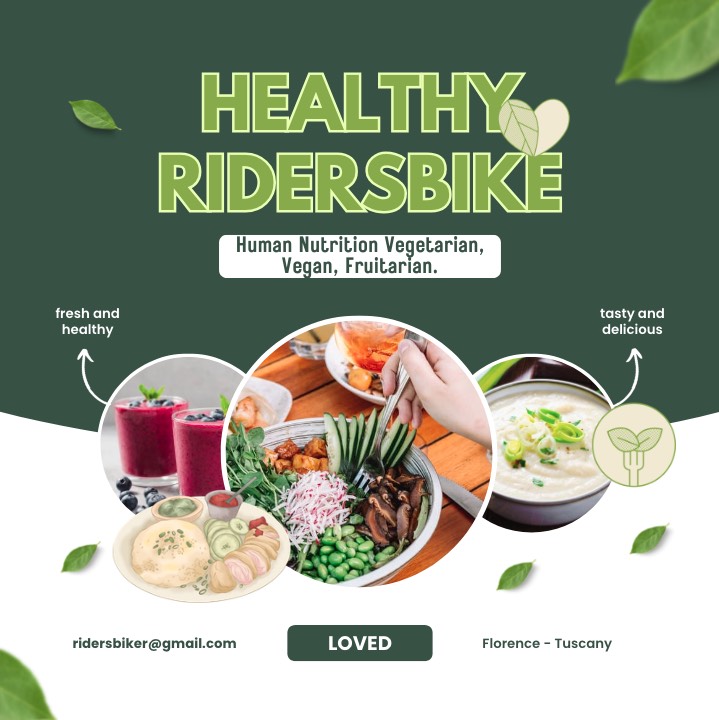Sports and vegetarian diet

A vegetarian diet can be very beneficial for athletes who participate in both competitive and recreational sports. This diet, rich in carbohydrates, proteins and essential nutrients, can support athletic performance and improve health.
For athletes, a high amount of carbohydrates is essential to ensure the storage of glycogen in the muscles, which is necessary for both endurance and strength training.
Proteins are important for the building, maintenance and repair of muscle tissue, and a vegetarian diet can provide adequate protein while increasing calories consumed.
Athletes should pay particular attention to their blood levels of ferritin, as they are at risk of a deficiency of this mineral, which can impair athletic performance. If a deficiency is present, supplements can be used.
A vegetarian diet for athletes should be balanced and carefully planned, including a variety of foods from the new four food groups: grains, legumes, fruits and vegetables.
It is also important to maintain adequate hydration by drinking plenty of water and unsweetened fluids.
Numerous top athletes, such as Martina Navratilova, Carl Lewis and Piero Venturato, demonstrate how a vegetarian diet can be compatible with high-level athletic performance.
In addition, it is recommended to consume proteins and carbohydrates after training to restore energy, promote muscle repair and reduce inflammation.
A vegan diet, which completely excludes foods of animal origin, can provide all the nutrients necessary to support an athlete in all aspects of their physical performance and general well-being, if managed correctly.
It is important to note that the diet of an athlete cannot be identical to that of a sedentary person, and that a vegetarian diet can be particularly beneficial for those who perform significant training loads.
In addition, it is advisable to pay attention to certain micronutrients such as vitamin B12 and vitamin D, which may be less present in a vegan diet and need to be obtained through supplements or fortified foods.
The vegetarian diet can therefore be a valid choice for athletes who wish to maintain a sporting attitude, both for competitive and recreational purposes, offering adequate nutritional support and an excellent basis for athletic performance.
Una dieta vegetariana può essere molto vantaggiosa per gli atleti che praticano attività sportiva sia per scopi agonistici che ricreativi. Questa dieta, ricca in carboidrati, proteine e nutrienti essenziali, può supportare le prestazioni atletiche e migliorare lo stato di salute.
Per gli atleti, è fondamentale un’alta quantità di carboidrati per garantire il deposito di glicogeno nei muscoli, necessario per lo svolgimento di attività fisica sia di resistenza che di forza.
Le proteine sono importanti per la costituzione, mantenimento e riparazione dei tessuti muscolari, e una dieta vegetariana può fornire un apporto proteico adeguato aumentando le calorie consumate.
Gli sportivi dovrebbero prestare particolare attenzione ai valori ematici di ferritina, essendo a rischio di carenza di questo minerale, che può compromettere le prestazioni atletiche. In caso di effettiva carenza, si può ricorrere ad integratori.
La dieta vegetariana per gli atleti dovrebbe essere bilanciata e pianificata con cura, includendo una varietà di cibi appartenenti ai nuovi quattro gruppi di cibo: cereali, legumi, frutta e verdura.
È importante anche mantenere un’adeguata idratazione bevendo abbondantemente acqua e liquidi non zuccherati.
Numerosi atleti di alto livello, come Martina Navratilova, Carl Lewis e Piero Venturato, dimostrano come una dieta vegetariana possa essere compatibile con prestazioni atletiche di alto livello.
Inoltre, è consigliato assumere proteine e carboidrati dopo l’allenamento per ripristinare l’energia, promuovere la riparazione muscolare e ridurre l’infiammazione.
Una dieta vegana, che esclude completamente gli alimenti di origine animale, può fornire tutti i nutrienti necessari per supportare un atleta in tutti gli aspetti della sua prestazione fisica e del suo benessere generale, se gestita correttamente.
È importante notare che la dieta di uno sportivo non può essere identica a quella di un sedentario, e che la dieta vegetariana può essere particolarmente vantaggiosa per chi pratica carichi di allenamento significativi.
Inoltre, è consigliabile prestare attenzione a determinati micronutrienti come la vitamina B12 e la vitamina D, che potrebbero essere meno presenti in una dieta vegana e necessitano di essere assunti attraverso integratori o alimenti fortificati.
La dieta vegetariana può quindi essere una scelta valida per gli atleti che desiderano mantenere un’attitudine sportiva, sia per scopi agonistici che ricreativi, offrendo un supporto nutrizionale adeguato e un’ottima base per le prestazioni atletiche.








